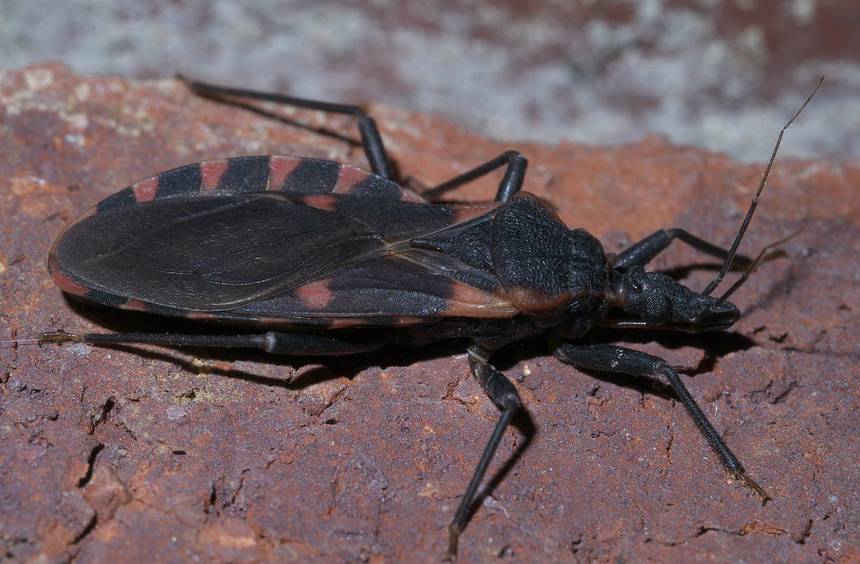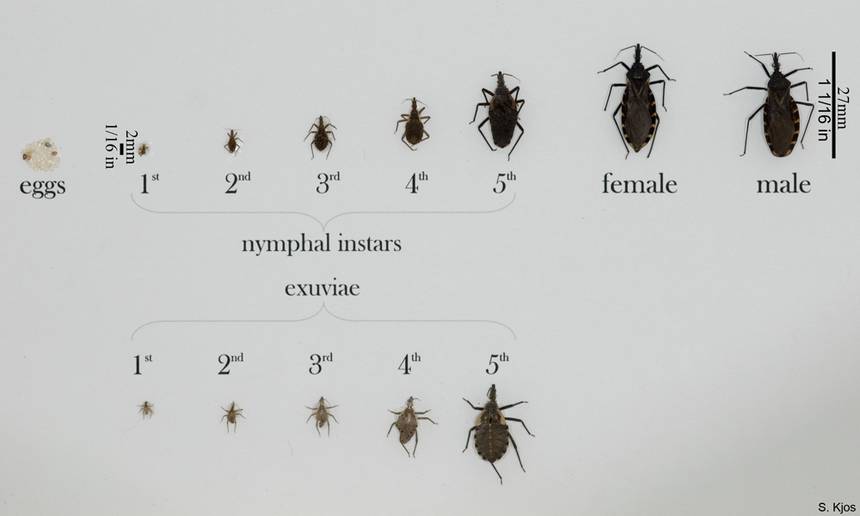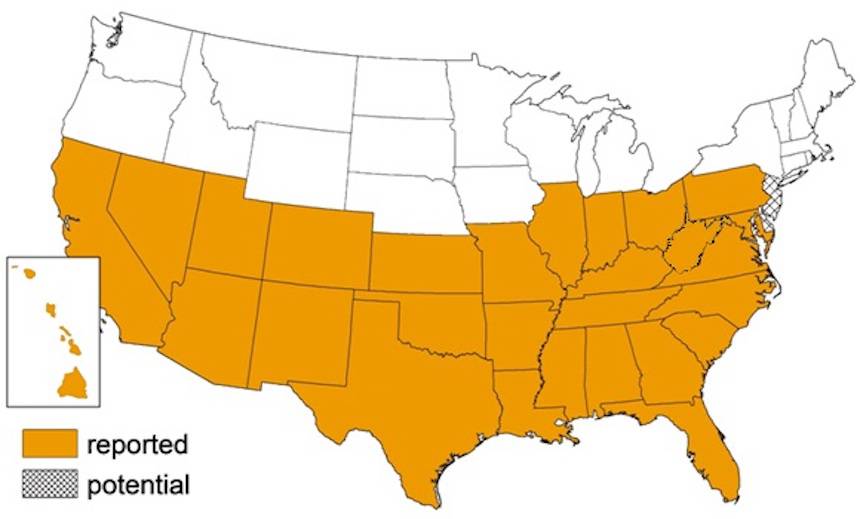How to avoid the bite of a kissing bug
- Transfer

The summer season opens the other day. A forest tick awaits us in the forests. In the United States, a kissing bug is common, the bite of which is no better than the bite of “our” tick. How to prevent yourself from a bite? Read the answers to these questions in this article. I will reassure dear readers: the “kissing bug” in Russia has not yet been noticed.
Kissing bugs can carry parasites that cause Chagas disease, and now they are already in the United States. A kissing bug is an insect with a charming nickname and deadly habits. A kissing bug is a nocturnal bloodsucker that carries people an inflammatory infectious disease.
They are also known as triatomine bugs, with their kisses they can spread the parasite Trypanosoma cruzi, which causes Chagas disease. Once found only in Latin America, this creepy "crawler robot" paved its way north to the United States, where it can now be found in dozens of states. According to doctors, approximately 8 million people living in Mexico, Central America and South America suffer from Chagas disease, most of which do not know that they are infected. If left untreated, the infection can remain in the human body for life and can be life threatening.
The first (acute) phase of the disease can last from several weeks to several months and often does not have symptoms, but can also be accompanied by fever, fatigue, pain in the body, headache, rash, loss of appetite, diarrhea and vomiting. In the chronic phase, which can last for decades, approximately 20-30 percent of infected people develop heart complications and / or gastrointestinal complications.

And although all this causes concern, the US Centers for Disease Control and Prevention (CDC) notes that the transmission of the T. cruzi parasite from a bug to a person is quite difficult.
It is important to note that not all triatominous bugs are infected with a parasite that causes Chagas disease. The likelihood of infection with the T Cruzi virus from triatomine in the United States is quite low.
However, children, as well as people with weakened immune systems and pets, are especially vulnerable. Therefore, to be bitten by you, take precautions from the CDC.
The above-mentioned bug-kisser has a tendency to bite his face, while he does not directly deliver the T. cruzi virus to his victim. The pathogen lives in the feces of the bug, and in order to infect a person, the bug must bite into the area of the damaged area of the skin or through the mucous membrane.

Where do they live?
Under the porch
Between rocky structures
Under concrete
In a rock, tree, bush or under the bark
In nests of rodents or burrows of animals
In kennels or kennels
In chicken coops or houses
Near the places where your pets sleep
In places where rodents are infected
In and around beds and bedrooms, especially under or near mattresses or nightstands
How to prevent infection
Make sure they cannot get into your home. As they bite at night, the bed is the most likely place where a person will be bitten.
Seal cracks and crevices around windows, walls, roofs and doors.
Remove trees and branches near your home.
Use nets on doors and windows and repair any holes or gaps.
If possible, make sure the lights are not near your home (the lights may attract insects).
Seal holes and cracks leading to the attic.
Have pets sleep indoors, especially at night.
Keep your home and any outdoor pet stays clean.
